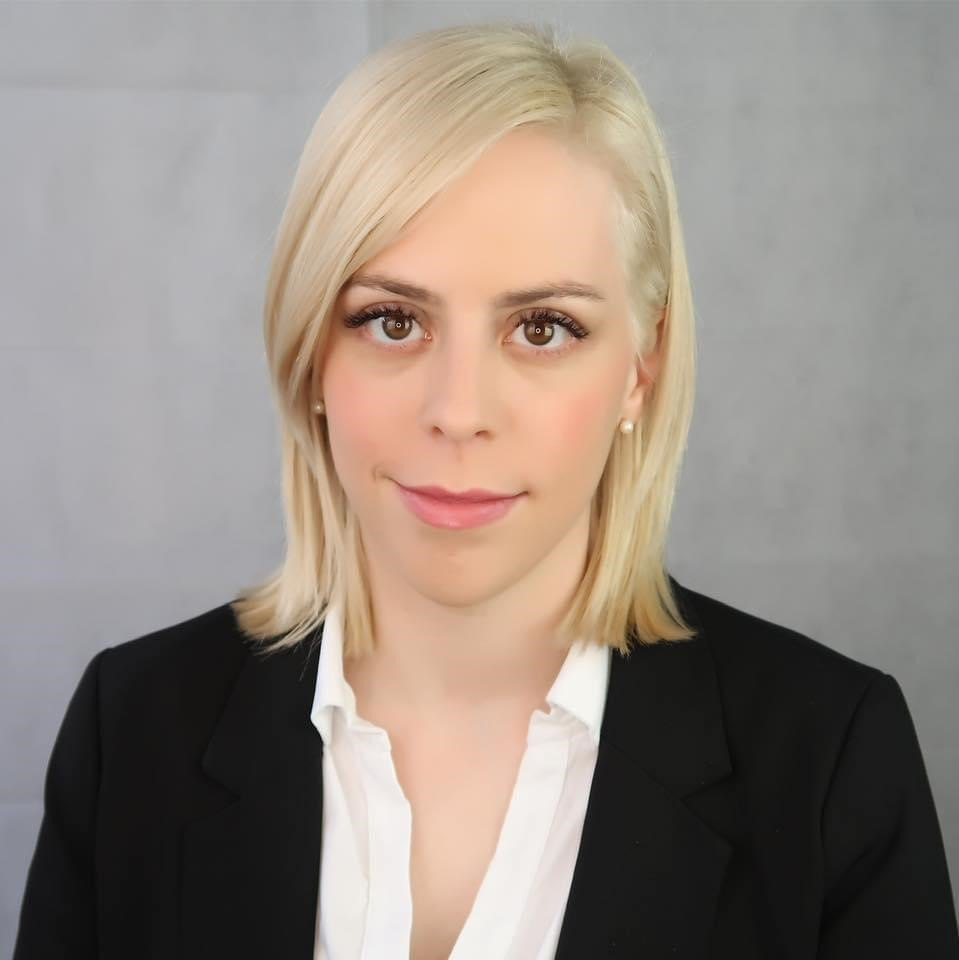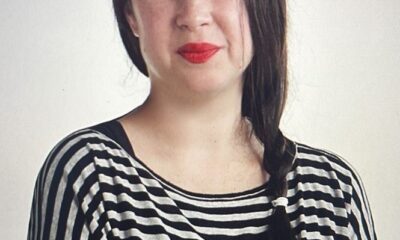
Banner

SA’s warm relationship with Iran ‘perplexing’, says activist
Visiting American Israeli journalist and social media influencer, Emily Schrader, has spent the past six months bringing the world’s attention to the Islamic Republic of Iran’s persecution of its own civilians. Somehow, she hopes to share what she knows with the South African government.
“South Africa is being used as a pawn” by the Iranian government, she said. “The Islamic Republic’s values are completely antithetical to the values that South Africa purportedly has. South Africa is a constitutional democracy, Iran is an autocratic theocracy.”
Schrader has been involved in organising peaceful demonstrations, solidarity rallies, and has taken part in several social initiatives to gain support for every day Iranians seeking greater freedom.
She has garnered thousands of signatures in a change.org petition to Twitter Chief Executive Elon Musk calling on him to ban the Ayatollah Khamenei from the social media platform.
“The more I see what goes on in repressive regimes, the more I find myself unable to be silent,” Schrader, 31, told the SA Jewish Report. She has a following across social media of more than 180 000, including 70 000 in Iran.
“Iranians were never enemies of Israel, they were allies before the Islamic Revolution,” Schrader said.
“Someone with no filter must stand up for women in Iran because so many people cannot,” she said.
The Tel Aviv-based human rights activist engaged legislators, civil society, non-profit organisations, and students on campuses during her visit to South Africa this week.
Alongside her Arab Israeli fiancé, Yoseph Haddad, 37, an Israel Defense Forces combat veteran and pro-Israel activist, the pair have offered solidarity, support, and guidance to Jewish students on local university campuses during Israeli Apartheid Week (IAW).
“It’s difficult for Jewish students during IAW. We wanted to be here to create content and education regarding some of the misconceptions and misunderstandings, to have it not all fall on the heads of students,” she said.
“Most of the time, students want to learn. They don’t want to go to university to be targeted for who they are and be forced to have endless political debates, especially when it’s not their area of expertise or passion,” she said.
The pair have engaged with Jewish students to empower them to be able to answer questions posed to them “but above all, to encourage them to stand strong and be proud of their identity because there’s no alternative”, Schrader said.
Schrader is a correspondent at Ynet News, and the founder of Social Lite Creative, a digital marketing firm. She’s the former digital director of StandWithUs, and a regular commentator in international media on issues of antisemitism, Iran-Israel relations, and online hate speech.
She was integral to the campaign pushing for the adoption on social media of the International Holocaust Remembrance Association’s definition of antisemitism. She has advised legislators in numerous countries in the West on effective policies to combat online antisemitism, and was recently named one of the top-100 people positively influencing Jewish life in 2023 by the Algemeiner Journal.
“I didn’t grow up in a religious Jewish home, and didn’t really think about Israel,” she said. Her social activism began when she attended University of Southern California as an undergraduate and encountered an obsessive, hostile anti-Israel environment.
“I started to speak out and over time, standing up for Israel and educating people about Israel became part of my focus,” she said. She made aliya in 2015, where her Israel advocacy work broadened to include global human rights issues including women’s rights.
It’s baffling to her why certain countries including South Africa are sympathetic towards the Islamic Republic given its well documented persecution of its own people. “The regime has also overseen the funding and arming of violent proxy terrorist organisations in Iraq, Syria, Yemen, Lebanon, and Gaza, and is responsible for the deaths of thousands of Muslims, Christians, and Jews throughout the region,” she said.
“Within Iran, the Ayatollah is responsible for the Islamic Revolutionary Guard Corps which is a United States-designated terrorist organisation, and the morality police, which routinely harasses and arrests women for not wearing the mandatory hijab.”
Schrader is the spokesperson for an American think tank called the Institute for Voices of Liberty, a non-profit educational public policy institute dedicated to reflecting the aspirations of the people of Iran.
“Iran is also terrible when it comes to workers’ rights, which is something the South African government feels strongly about,” she said.
Last week’s agreement brokered by China between Iran and Saudi Arabia to re-establish diplomatic relations was “concerning and disappointing”, she said.
Describing Israeli politics as “messy”, she said her support for Israel wasn’t based on the government of the day, but on the belief that the Jewish people have a right to self-determination and a homeland.
Though the move to the right-wing makes things more difficult, she said, “It’s inspiring that almost half a million Israelis are protesting peacefully throughout the country week after week. It’s impressive, and though I don’t agree with the proposed judicial reforms, it’s testament to democracy and the resilience of the Israeli people that you see such a strong push back.”
Schrader is also involved with Together Vouch for Each Other, an organisation set up to promote peaceful dialogue between Jews and Arabs in Israel of which her partner, Haddad, is the founder. Their shared values and passion for truth about Israel and its diverse population brought them together.
“It’s ok to condemn policies of the state of Israel,” said Schrader, “What’s not ok is to condemn the fact that Israel has a right to exist. Anti-Israel activists aren’t talking about specific policies, their interest is the elimination of the state of Israel, and that’s something we cannot accept.”










